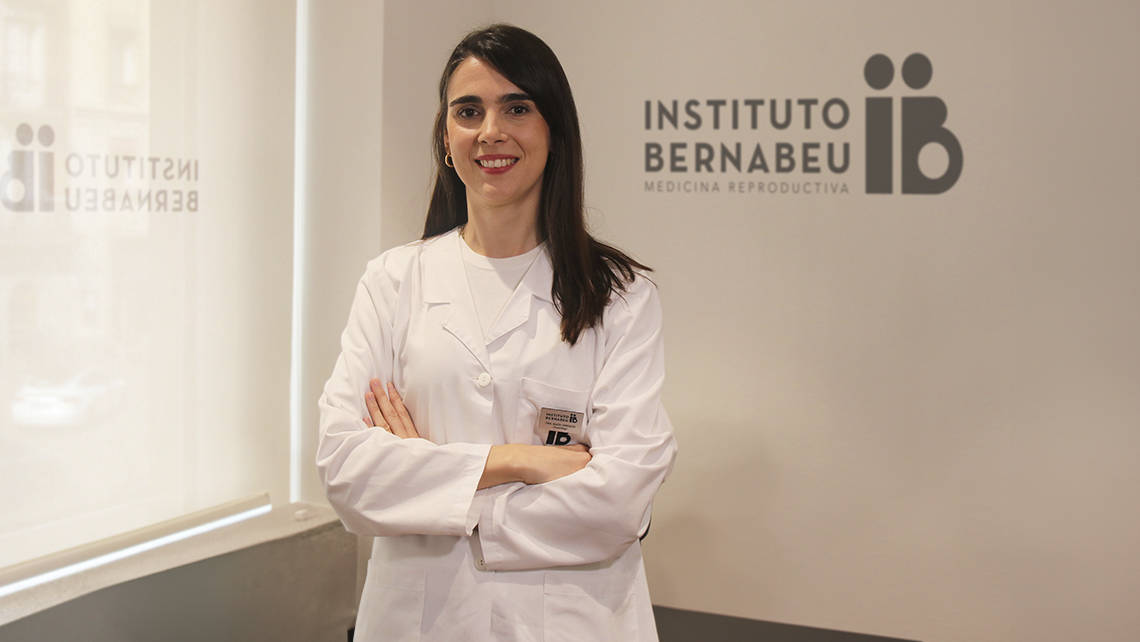Demand for egg freezing treatments to delay childbearing has tripled since pandemic.
March, 1st 2024

- Instituto Bernabeu creates a Specialised Oocyte Cryopreservation Unit.
- The average age at which Spanish women have their first child continues to rise, currently exceeding 32.6 years, when in 2010 the age was 29.8 years.
- Dr Alicia Herencia: “It is a very important tool for women to be able to decide about their reproductive future”
- The main reason is the need or desire to postpone childbearing, but it is also done prior to some ovarian surgeries of before receiving chemotherapy treatments.
Oocyte cryopreservation has become a tool within the reach of many women allowing them to postpone the moment of becoming mothers and thus plan their reproductive project. Egg freezing has mainly ensured that the chances of success of a treatment in the future are the same as they would be if the treatment were carried out today, speaking only about oocyte quality.
For this reason, Instituto Bernabeu has created the new Oocyte Cryopreservation Unit, coordinated by Dr Alicia Herencia. “The objective is to take a step forward in our medical care and to be able to channel, in a coordinated and experienced way, the work we carry out in each of the 9 Instituto Bernabeu clinics”, explains Dr Herencia, who added that “the new unit allow us to implement the most innovative techniques, with new ovarian stimulation guidelines and more comfortable treatments with fewer adverse effects, as well as scientifically promoting multidisciplinary research in this field”.
Since 2021, the number of oocyte preservation cycles at Instituto Bernabeu’s clinics has tripled. “This reflects how important it is, on a social level, for women to know that they can freeze their eggs and the benefits it brings them in terms of planning maternity,” says Dr Herencia. There are many reasons, but the main one is the need or desire to postpone motherhood for personal reasons. Although there are other circumstances such as, for example, prior to some surgeries in which the ovary may be damaged or before receiving medical treatments such as chemotherapy that may affect the patient’s reproductive capacity. Women with a higher risk of having a low ovarian reserve (suffering from endometriosis, early menopause or autoimmune diseases) also undergo this treatment.
The eggs’ quantity and quality decreases over the years, but this decrease becomes noticeable above the age of 35, and even more pronounced above the age of 38. Therefore, the possibility of generating embryos with chromosomal problems increases with age. “My recommendation, in general circumstances and without previous pathologies, is to cryopreserve oocytes before the age of 35 to try to obtain the best results,” Alicia Herencia points out.
In fact, at 35 years of age, 70-80% of the embryos have a correct chromosomal endowment, whereas at 41-42 years of age this percentage is inverted and up to 80% of embryos may have some chromosomal alteration, which make it difficult to get pregnant and increases the miscarriages rate. Therefore, if a woman freezes her eggs as soon as possible, her risk of miscarriage remains the same as when she freezes them and, if she wishes to have children at the age of 40, she will have similar probabilities to when she froze her eggs. “This is especially relevant because every day we have to tell many women in our offices that they will not be able to become mothers with their own oocytes, news they always receive with great sadness. But this is something that, on many occasions, could be avoided with the cryopreservation of eggs when they are still in good condition,” says the coordinator of the new unit.
The average age at which Spanish women have their first child continues to rise, currently exceeding 32.6 years (in 2010 the age was 29.8 years), with the added difficulties this can generate for female fertility. Moreover, the number of children born in Spain is falling progressively, with the number of children per woman falling from 1.37 to 1.19 between 2010 and 2021.
The fate of unused oocytes.
Not all eggs that are frozen are always used, but in Spain, the law on assisted reproduction provides for various destinations in the event of not wishing to keep them vitrified. The woman can simply request the termination of their conservation, so that they would be destroyed; they can donate them for scientific research or there is the possibility of donating them to other couples for reproductive purposes, as long as a series of minimum requirements are met.
